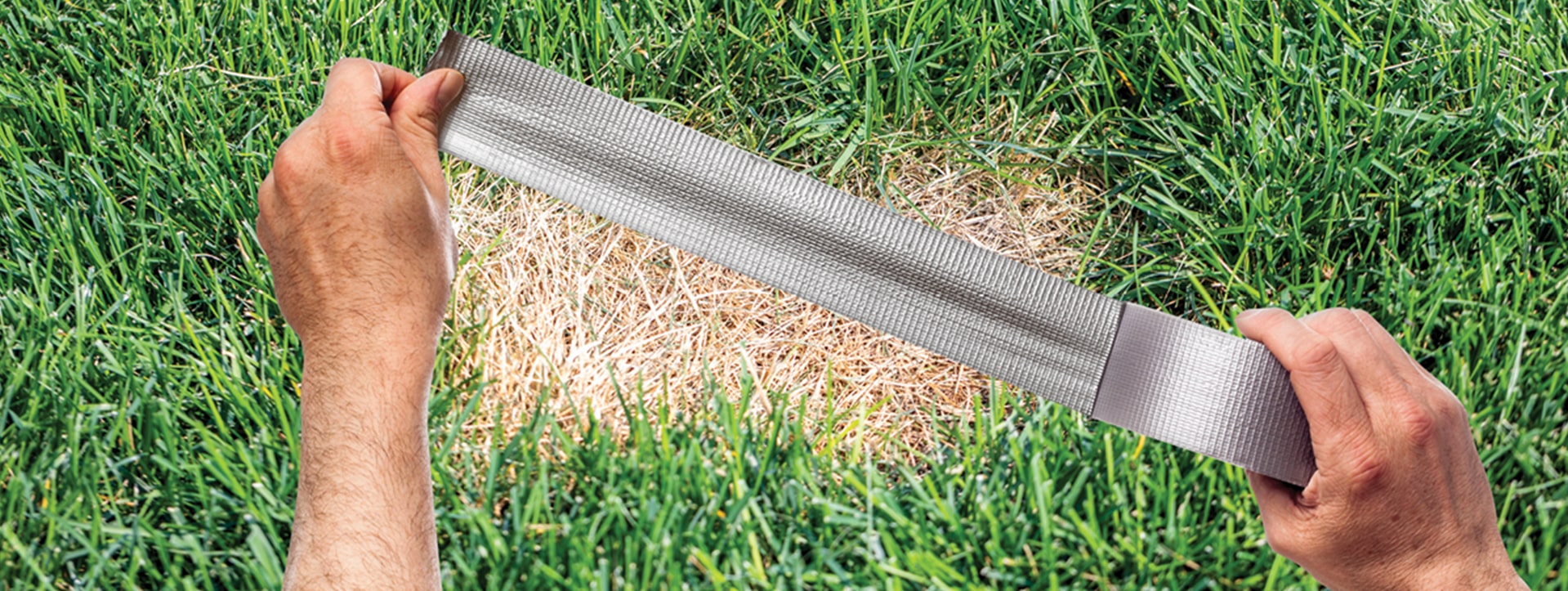The summertime sun can be harsh on our lawns. Brown, dry patches can crop up and spread, becoming a persistent eyesore. Don’t let parched grass patches ruin your backyard bliss! With the right knowledge, you can diagnose the cause and implement effective solutions. From implementing proper watering techniques to examining soil conditions, let’s embark on a journey of lawn resuscitation.

Image: www.youtube.com
Examining Soil Conditions
Soil composition plays a crucial role in grass health. Determine your soil type, whether it’s clay, sandy, or loam, to understand its characteristics and water retention capabilities. Healthy soil pH levels are essential for thriving grass. In general, a range between 6.0 to 7.0 is desired. Perform a soil test to ascertain the pH level and nutrient content to tailor your lawn’s needs.
Optimizing Watering Habits
Watering practices hold paramount importance in preventing dry patches. During hot, dry seasons, frequent watering is necessary. Water deeply and less frequently, allowing the moisture to thoroughly penetrate the root zone. Aim for optimal soil dampness without overwatering. Overwatering can lead to shallow root development, increasing susceptibility to drought.
Addressing Dry Lawn Syndrome
Dry Lawn Syndrome, a harmful condition, can arise primarily due to overfertilization. Excessive fertilizer leads to salt buildup in the soil, robbing grass roots of moisture and nutrients. It’s essential to abide by fertilizer recommendations and conduct soil testing to prevent such issues, ensuring a healthy balance of nutrients for your grass.

Image: www.cobbittyturf.com.au
Treating Lawn Disease
Viral or fungal diseases can induce dry patches in your lawn. These can spread rapidly, impacting a vast area of grass. Identifying the cause of the disease is key. Fungal diseases often manifest as yellow spots, which may progress to brown patches, while viral diseases are characterized by brown lesions with ring-like patterns. Consult a lawn care specialist to determine the most effective treatment plan.
Seeking Expert Lawn Care Advice
Don’t hesitate to consult professional lawn care services if you encounter persistent dry patches. Experts can provide comprehensive advice, tailored to your lawn’s unique conditions. They can conduct a thorough analysis of your soil, recommend suitable watering regimens, and propose disease management plans. The investment in expert care can lead to a lush, healthy lawn that will be the envy of your neighborhood.
FAQs
- Q: How do I check the soil moisture?
- Q: Can compost improve my soil’s health?
- Q: How can I strengthen my lawn’s drought tolerance?
A: Aerate the lawn to facilitate better root development and drought resistance.
A: Use a moisture meter to measure the soil’s moisture content accurately.
A: Yes, organic matter like compost can improve soil structure and nutrient retention.
How To Fix Dry Grass Patches
Conclusion
The struggle against dry grass patches can be a tale of determination and lawn care mastery. By understanding soil conditions, optimizing watering practices, addressing lawn ailments, and leveraging expert advice when needed, you can turn those brown patches into a lush, vibrant lawn. Remember to consistently monitor your lawn’s health, as vigilance is essential in maintaining its pristine appearance. Are you ready to embrace the challenge and become a lawn-care wizard? Let’s bring your lawn back to its full glory together!